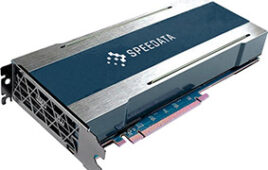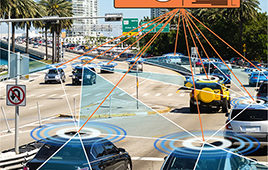Case Western Reserve geneticist receives prestigious NIH Director’s Pioneer Award
Noted geneticist, Joseph Nadeau, PhD, of Case Western Reserve University School of Medicine, has received a 2010 National Institutes of Health (NIH) Director’s Pioneer Award.
One of 17 awardees to receive this prestigious distinction, Dr. Nadeau will investigate transgenerational genetic effects, where the biological features and disease risk of an individual has been found to depend as much on the genetics of ancestral generations as on their own inherited genes. His discovery of this unexpected mode of inheritance challenges the most fundamental premise of most studies where an individual’s genes, environmental exposures and life experiences are customarily thought to determine their health status.
“This NIH Director’s Pioneer Award is a once-in-a-lifetime opportunity to study this new mode of inheritance” says Dr. Nadeau, the James H. Jewel Professor and Chair of Genetics Department. The five-year grant is supported by an award of $3.9 million.
An enormous international effort is currently underway to discover the genetic basis for common human diseases. While many important discoveries have been made, most of the genes have eluded discovery. As a result, the goal of diagnosing, treating and preventing common birth defects and adult diseases remains unfulfilled.
Discovery of transgenerational genetic effects helps reconcile the general sense that traits and diseases ‘run’ in families. That is, having a family member with a disease dramatically increases the inherited risk for everyone else in the family. Although familial occurrence remains the single strongest factor for disease risk, these genes have proven extraordinarily hard to find, a problem that has been called ‘missing heritability’. If these genetic variants act across generations, as Dr. Nadeau’s evidence suggests, then traits can still have a genetic basis, but the ‘disease genes’ may present themselves in previous generations and not necessarily in the affected individuals, which would be a revolutionary discovery.
Dr. Nadeau’s work, on which the Pioneer Award is based, has shown that this unconventional mode of inheritance rivals conventional genetics in its impact on biological variation and disease risk. The major challenge now is to identify the molecular basis for these effects and to determine whether a similar mode of inheritance occurs in humans.
“NIH is pleased to be supporting scientists from across the country who are taking considered risks in a wide range of areas in order to accelerate research. We look forward to the results of their work,” says NIH Director Francis S. Collins, MD, PhD.
Dr. Nadeau’s research focus throughout his career has involved the genetics of mouse models of common human diseases and conditions, such as cancers, obesity and metabolic diseases, as well as birth defects. His work has relied on creating specially engineered mice and developing special computational methods and databases. But through these various studies, over many years, a growing sense emerged that current thinking and evidence was incomplete, and that other as yet unidentified factors and mechanisms were in play.
This year’s recipients of the NIH Director’s Pioneer Awards will join the 81 Pioneers selected since the start of each program in 2004. These awards support individual scientists of exceptional creativity who propose pioneering ? and possibly transforming approaches ? to major challenges in biomedical and behavioral research. The NIH selects recipients through special application and evaluation processes. Distinguished outside experts identify the most highly competitive applicants.
More information on the Pioneer Award is at http://nihroadmap.nih.gov/pioneer and on the New Innovator Award is at http://nihroadmap.nih.gov/newinnovator.




